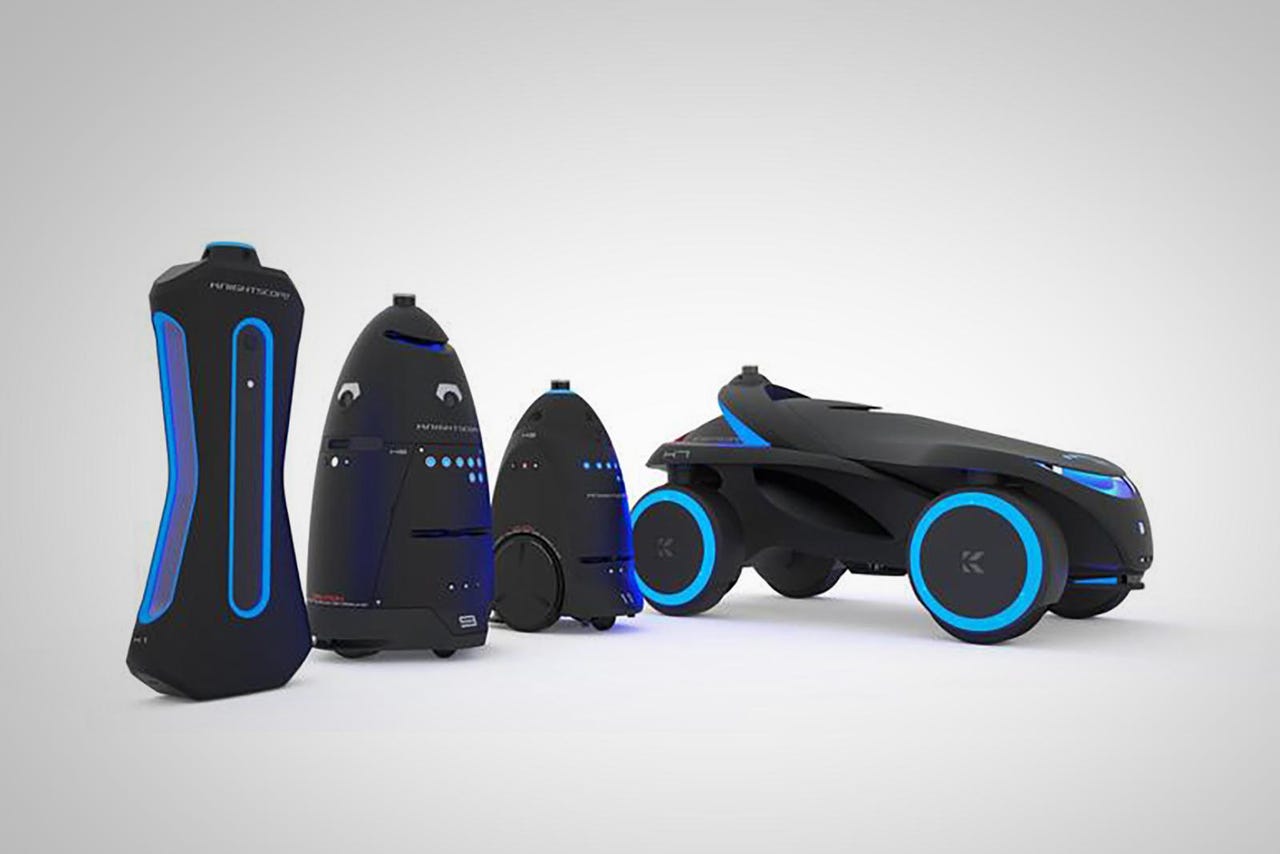One of America's most hated companies hired a security robot. It didn't go well


Annoying the neighbors?
Can a robot bring you peace of mind?
Special Feature
This has, for some time, been a conundrum that's wafted around my inner workings.
If robots are so clever -- and some surely are -- they can protect us from all sorts of nefarious threats and intrusions. From other robots, for example.
So when I first heard that a company called Knightscope had created security robots that patrolled buildings, I was unnaturally moved.
How would the local, inferior humans react? I learned this quickly when a human was accused of assaulting one of these things at the company's own offices in Mountain View, California.
Yet I continued to get emails from the company, as its business apparently flourished. Even when one of its security robots fell into a shopping mall fountain.
Recently, though, I heard that a local company -- one at which many customers are irate -- had hired one of Knightscope's rolling software sheriffs.
Featured
California utility PG&E has become notorious for its arrogant, monopolistic attitude and its role in devastating fires. In 2020, its CEO stood and pleaded guilty to 84 cases of involuntary manslaughter during the Camp Fire in northern California.
So I wasn't entirely surprised when PG&E decided to employ an autonomous security robot at its 19th and Folsom Street yard in San Francisco and locals were less than entertained.
One resident told Mission Local: "People without homes have used these sidewalks for a while now, and the robot annoys the hell out of anyone trying to do as much as just stand here."
Then there was the noise. A fine human security guard knows how to walk quietly. The Knightscope robot, however, makes surreal, spacey sounds, as if it's auditioning for Doctor Who.
Said one local: "We can hear the annoying sound that the robot makes all day long, including when we're trying to sleep at night."
Perhaps, then, the locals will be ululating hosannas on hearing that the security robot experiment -- which allegedly saved PG&E $9 an hour -- has come to an end.
A PG&E spokesperson told the San Francisco Standard: "After some initial testing of the Knightscope unit and proactive discussions with the city on this matter, PG&E will not be continuing with plans to deploy the unit at our Folsom location."
Could it be that human discomfort actually won the day -- and the night? Might PG&E be so sensitive about its parlous brand image that it decided saving a little money -- something its customers won't be doing this winter -- isn't worth the uproar?
I asked Knightscope for its view and will update, should I hear a bleeping sound coming up my driveway.
Also: Best of CES 2023: 6 innovations that will shape the future
This all rather reminds me of the fine experiment with robot dogs of war.
The US Marines once experimented with using Boston Dynamics' robot dogs to carry equipment and perform other essential tasks, thereby lightening the load for the troops.
There was one little issue. The robot dogs made so much noise as they clunked and clanked along the battlefield that they gave away the Marines' positions.
Some robotic ideas sound wonderful in theory. But humans have certain emotional parameters that haven't always been considered by robot makers.
Because, of course, it takes a rare mind to consider: "Wait, if this thing makes funny noises at night, it might wake up the neighbors."